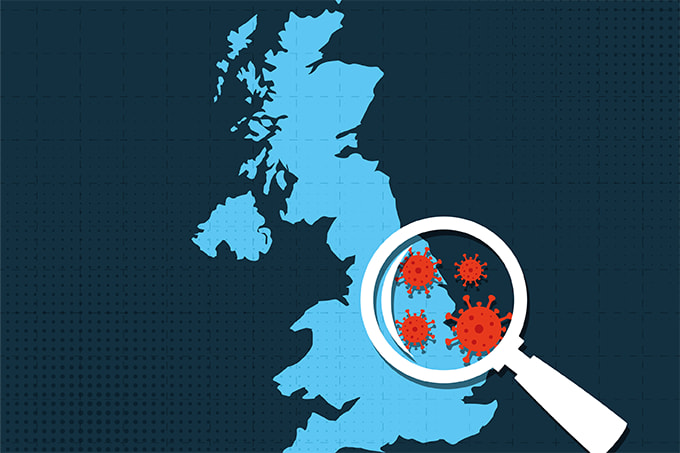
Priorities have continued to shift when it comes to curbing the spread of SARS-CoV-2 – from national lockdowns to mass testing. Recently, rapid mass testing has been proposed as the key to fully reopening communities across the US – but this is easier said than done; rapidly identifying asymptomatic, presymptomatic, and symptomatic carriers still presents a challenge.
Researchers from Gladstone Institutes, the University of California San Francisco, and the University of California Berkeley recognized this need and developed a CRISPR-Cas13a assay that uses a smartphone camera to directly detect SARS-CoV-2 from nasal swab RNA (1). The test avoids the need for amplification, facilitating point-of-care use, and returns accurate results in under 30 minutes.
“One reason we’re excited about CRISPR-based diagnostics is the potential for quick, accurate results at the point of need,” said Jennifer Doudna (2), a collaborator on the study and winner of the 2020 Nobel Prize in Chemistry for her co-discovery of CRISPR-Cas genome editing. “This is especially helpful in places with limited access to testing or when frequent, rapid testing is needed. It could eliminate a lot of the bottlenecks we’ve seen with COVID-19.”
But the test not only detects the presence of COVID-19, it also measures the viral load of SARS-CoV-2 – as low as ∼30 copies/μL. “When coupled with repeated testing, measuring viral load could help determine whether an infection is increasing or decreasing,” said UC Berkeley bioengineer Daniel Fletcher (2). “Monitoring the course of a patient’s infection could help healthcare professionals estimate the stage of infection and predict, in real time, how long is likely needed for recovery.”
References
- P Fozouni et al., Cell, [Online ahead of print] (2020). PMID: 33306959.
- Gladstones Institute (2020). Available at: https://bit.ly/2KgOjpD.




